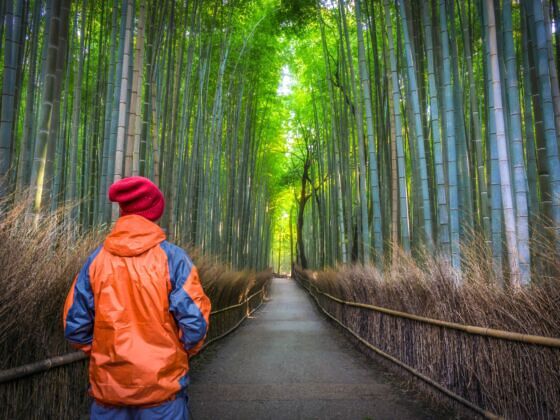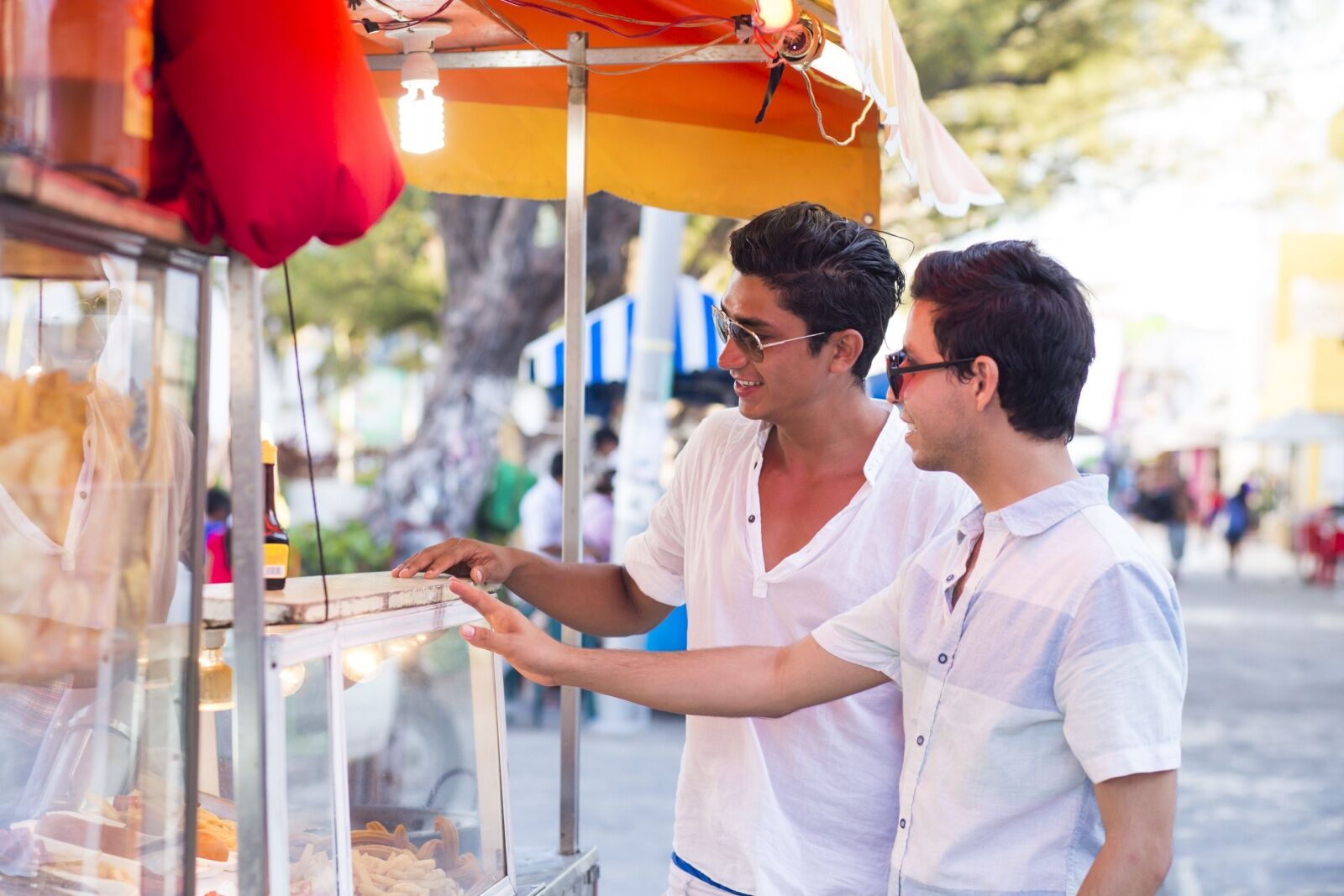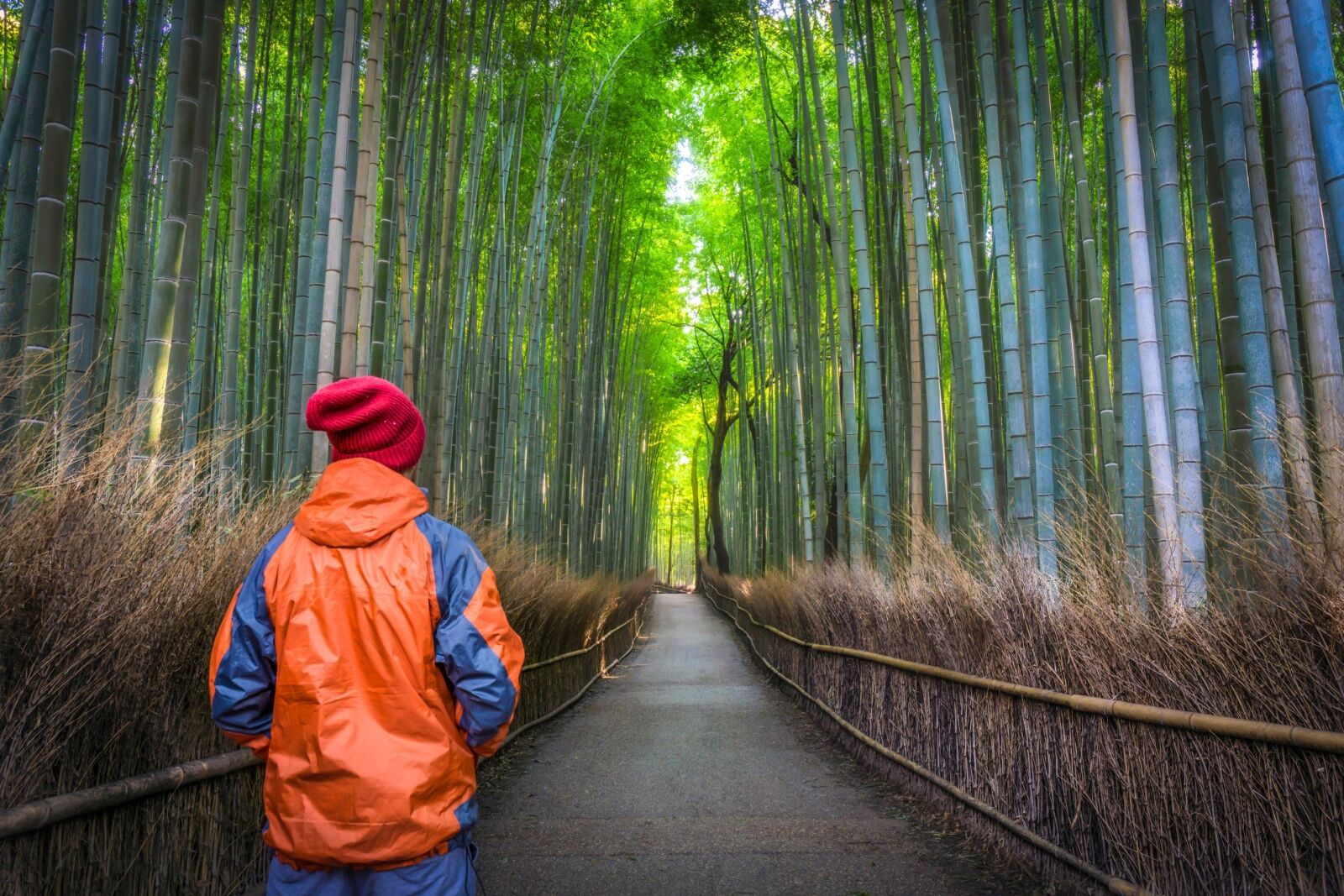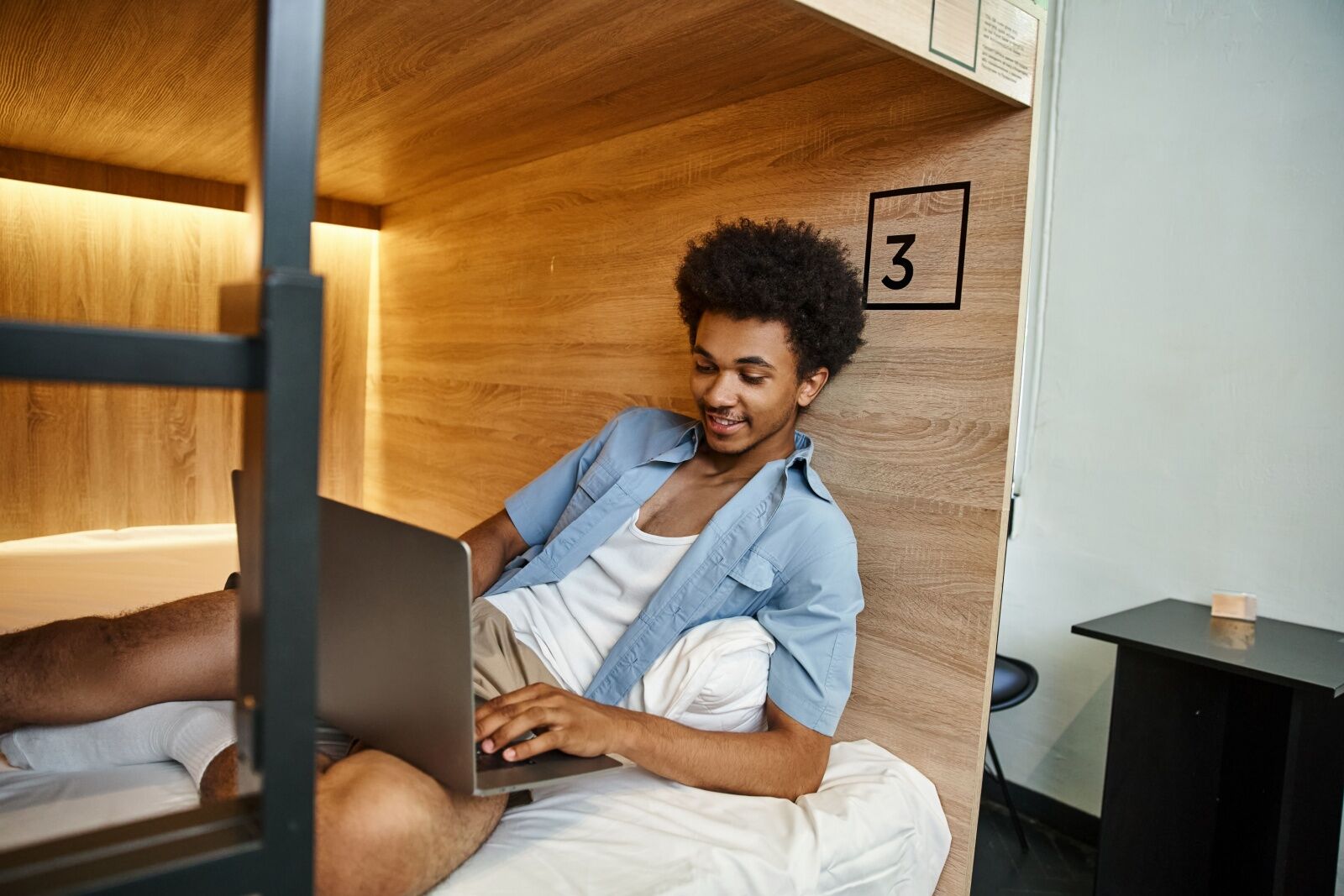Many peer-reviewed and widely accepted studies have shown that autistic individuals are far more likely to identify as being part of the LGBTQIA+ community as compared to non-autistic individuals. And some researchers estimate that up to 35 percent of people with autism fall into that category. That’s more than four times the generally accepted estimates of overall LGBTQIA+ self-identification within the greater population, which is currently about seven percent of people in the US.


I'm a LGBTQIA+ and Autistic Solo Traveler. Here's What It's Like.
Why there is such an overlap between autism and LGBTQIA+ identification is enough to warrant its own lengthy article, but I’m a mere drop in the autistic ocean in this case, as I belong to both communities. I also happen to be a frequent solo traveler who works in the tourism industry.
Both are intrinsic parts of my complete identity and impossible to separate, and have led me on a personal journey to rationalize and compartmentalize both when it comes to planning travel. Both autism and sexual orientation are invisible at first glance to those around you, but may soon become apparent as someone gets to know you.
Being autistic means that there is a hefty amount to consider in terms of travel pre-planning and organization to ensure everything you’re considering booking will match your needs, or at least be able to accommodate you in some form or another. There’s also a lot to keep in mind while traveling itself. Minimizing triggers, balancing social and alone time to avoid burnout, and avoiding certain places that might cause overstimulation are all critical parts of planning a travel itinerary. That may mean visiting certain attractions at off times or buying tickets in advance to avoid long lines and crowded areas. It can be exhausting just to think about, but these are essential skills I’ve had to learn to perfectly balance to get the most out of my trips without being mentally fatigued by the end of them.
Being queer while traveling also takes a lot of pre-planning. But it’s a different kind of planning from being autistic, as it can require a significant amount of extra caution, depending on where you’re planning on visiting.

Some countries are friendlier to non-traditional couples than others. Photo: Luna Vandoorne/Shutterstock
While the impact you’ll feel from discriminatory laws, customs, and practices in various countries depends on where exactly you fit into the LGBTQIA+ community, those laws are often symbolic of wider societal issues regarding prejudice and bigotry. Some countries have even criminalized the act of being gay, punishing people for being themselves (in some cases, with death). So there’s a huge need to think carefully about your personal safety while traveling. Asking a trusted friend from a destination you’re thinking of visiting or conducting your own thorough online research is perhaps the best way to cast away any doubts or concerns you may have when considering a particular travel destination.
With that in mind, I daresay that traveling with my disability feels easier than traveling with my sexuality. While being autistic does open up a lot more vulnerabilities and room for a margin of error, I have never felt like it explicitly stood in the way of my travels. It’s not something I feel the need to tell everyone I meet, but is also not something I feel the need to hide from anyone, either.
Additionally, while masking (trying to minimize autistic behavior) is an important facet of most autistic people’s lives, I find myself using it much less during my adventures. Being a tourist abroad seems to come with the perk of others often lowering their expectations that you’ll conform to their local social standards. It’s especially true when traveling to destinations that don’t speak the same language you do.

In some countries, being alone and keeping to oneself fits in more with the local culture. Photo: David CJ/Shutterstock
Similarly, there are times when you’ll encounter cultures that embrace or welcome certain autistic traits that may be seen as a social deficit in your own country. For example, upon moving to Japan, certain aspects of the culture were harder to adapt to, but many fit in perfectly with my own unique set of autistic traits, like being reserved and keeping to myself in public settings.
Being a person with autism often comes up in conversations when I’m meeting new people abroad, as it is now the main focus of my work and travels. Sometimes, I’m met with ableist remarks, but in the majority of cases, that’s from a place of ignorance rather than intolerance. And because of that, I’m more than happy to correct and educate those people, as I do feel that misunderstandings and misconceptions surrounding autism (and, more generally, neurodivergence) are still rife in societies across the world.
However, being part of the LGBTQIA+ community makes me think more acutely about the dangers I could put myself in by being too open with others. There’s never been a single instance I can think of where disclosing my disability during a trip may have put me in danger, but the same can’t be said for disclosing my sexuality. In fact, if you do want to travel to many of the amazingly beautiful places the world has to offer that are less tolerant, it’s usually wiser to keep quiet regarding it.
Many queer individuals simply choose not to visit those destinations because of that, and their sentiments are completely valid. Still, others do visit, but remain quiet on private matters. I find myself usually taking the middle ground, and think adapting based on the location is the best approach. That said, there are plenty of places I would not currently consider visiting due to safety concerns, not always exclusively related to LGBTQIA+ issues.
I’ve found that it’s important to get a feel for the people you’re with before deciding whether to open up, even in the safest of countries for LGBTQIA+ travelers that seem welcoming. In general, backpacking and staying in hostels generally alleviates my unease, and I’ve found hostel-goers to be a welcoming community generally open to different walks of life. Naturally, there will always be exceptions, but knowing that intolerant people are in the minority can be heartwarming.

This writer has found hostels to attract generally accepting travelers. Photo: LightField Studios/Shutterstock
Traveling as someone who belongs to a minority group always presents its own unique sets of challenges, and when you belong to two or more, it can seem like the challenges are twofold. But it doesn’t have to be overwhelming. Traveling while autistic and gay creates one complex issue, with a lot to consider from various angles that can change depending on each trip. Some aspects provide no direct obstacles, and some may even work in your favor, as I noticed in Japan.
Traveling can teach us about the world, but can also be our chance to teach others about meeting people from different backgrounds. Opening myself up to travel, to new people, and to new experiences has not only helped me work on my own personal development, but also helps foster the space to build a much more inclusive and welcoming world than what we have today.